I love zombies, and as with many fans, it all started with watching Night of the Living Dead, 28 Days Later, and Shaun of the Dead in high school and college. I've been spending the last several days eagerly pounding away at my mouse and keyboard to TellTale Games' The Walking Dead based on the much beloved comics (and from what I hear there is a TV show by the same name as well - though I only watched the first season, and yes I'm sure that makes me a heathen in some circles.) So why the fondness for the flesh devouring masses? Simple. They give us stories that look at the hardest things we can imagine,
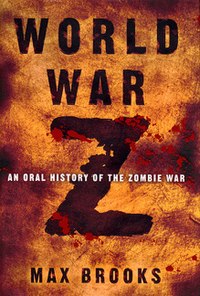 despite them being in front of us on a regular basis: the end of the world, extinction, morality, compassion, anarchy, society, grief, and more. This is what makes the genre worth a damn. It is not about cheap thrills and colossal moments of mayhem as the most recent blockbuster zed film World War Z would offer up (Read the book, it's by Max Brooks, you'll like it [Yes, that Mel Brooks one that made Space Balls]). It is the moments when you realized that you have only enough food to feed half your group, the children are wasting away, but the watchman needs food to protect your outpost; someone might have been bitten the last time you had to tangle with the shambling devourers, so choices must be made; maybe some group of yahoos with bigger and better guns are hunting you down for supplies.
despite them being in front of us on a regular basis: the end of the world, extinction, morality, compassion, anarchy, society, grief, and more. This is what makes the genre worth a damn. It is not about cheap thrills and colossal moments of mayhem as the most recent blockbuster zed film World War Z would offer up (Read the book, it's by Max Brooks, you'll like it [Yes, that Mel Brooks one that made Space Balls]). It is the moments when you realized that you have only enough food to feed half your group, the children are wasting away, but the watchman needs food to protect your outpost; someone might have been bitten the last time you had to tangle with the shambling devourers, so choices must be made; maybe some group of yahoos with bigger and better guns are hunting you down for supplies. Where does it come from though?
The idea of zombies has been around for some time. There is reference to the undead in some of our earliest texts and even more in our folklore. The most common folkloric tales are those of the voodoo style zombie; often an African slave in life damned to continue as one into un-death and never rest. Their entrance into media might be with the Cabinet of Doctor Caligari a German expressionist film, and the novel I Am Legend the much remade tale (though they are more vampiric) . It isn't until we get to the most modern zombie tales that are based around the work of George A. Romero (who is said to have drawn inspiration from
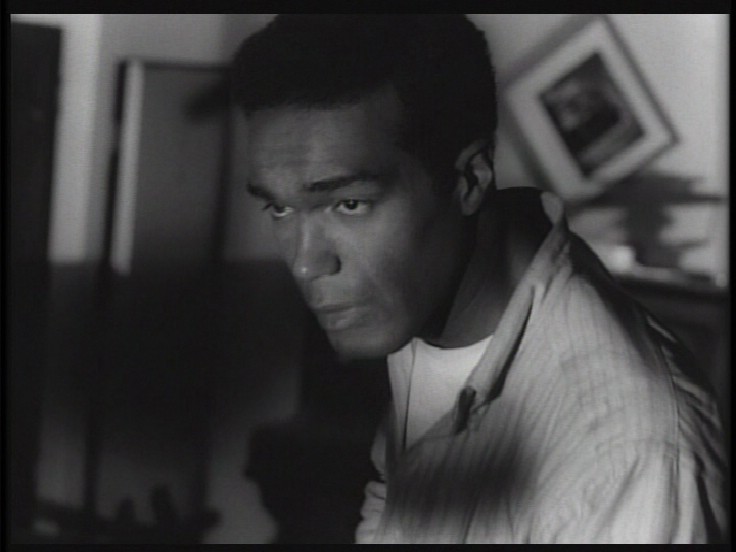 I Am Legend when creating Night of the Living Dead) that zeds take on a heavier cultural weight. The starkness of the grim fates portrayed on the screen to those seeing war footage from Vietnam, and then the violent fate of the lead Ben; not by the gaping maws of zombies, but the pervasively ignorant assassination from a white posse. This also being a few years after Malcolm X's murder, and on the heels of Rev. Dr. Martin Luther King Jr.'s as well, made the subversive content echo.
I Am Legend when creating Night of the Living Dead) that zeds take on a heavier cultural weight. The starkness of the grim fates portrayed on the screen to those seeing war footage from Vietnam, and then the violent fate of the lead Ben; not by the gaping maws of zombies, but the pervasively ignorant assassination from a white posse. This also being a few years after Malcolm X's murder, and on the heels of Rev. Dr. Martin Luther King Jr.'s as well, made the subversive content echo. Enough with the history lesson already, mister.
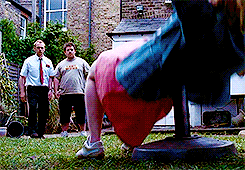 A lot of people like to put Zombies in to the category of Horror, which makes sense. Blood, guts, monsters, and the frightening atmosphere of a house, city, or world overrun by the living dead. It is a pretty terrifying fit. Though time and again I find myself viewing it with a tilt toward science fiction. Strictly on the basis that Zombies ask us to think about 'Us'. Throughout “The Walking Dead” and many other zombie tales it is often reiterated “I'm not worried about the dead, it's the living that scare me.” Why? Well, Zombies just want to eat you. They don't want to steal your food, they don't want to siphon the fuel out of your car, they don't want to enact marshal law, they just wanna eat you. Why does this make these walking corpses eligible to enter the ranks of spaceships, robots, and clones? Well, in my mind sci-fi does its job best when it is asking cultural and societal questions of the now by adding astonishing curve balls, like androids that crave equal rights; Zombies by what they reveal in peeling away the thin layer that is civility. They make society primal and amplify its emotions. Gone are the convenient staples of modern first world: electricity, plumbing, refrigeration, safe shelter, trust. Maslow's Hierarchy is fucked while the dead roam the earth. I think that is what makes these monsters different. Upended is the world by the rules that you know, because no one is safe. And to top it all off they don't care; they are not hunting you because of some curse, vengeance, or master plan - just instinct. They seem to have more in common with the Alien xenomorphs than Freddy, Jason, psychos, or ghouls (actually that is what they were called in Night of the Living Dead). Granted this is all theory, but people have done much worse for lesser threats than a zombie apocalypse. Also are they really monsters? Or are they us? Richard Matheson creates a new species in his tale, and the recent gangbusters game The Last of Us which features it's own style of living dead does something similar. Perhaps that is what zombies are; an inevitable and gruesome lurch forward for mankind or it's self consuming styled extinction.
A lot of people like to put Zombies in to the category of Horror, which makes sense. Blood, guts, monsters, and the frightening atmosphere of a house, city, or world overrun by the living dead. It is a pretty terrifying fit. Though time and again I find myself viewing it with a tilt toward science fiction. Strictly on the basis that Zombies ask us to think about 'Us'. Throughout “The Walking Dead” and many other zombie tales it is often reiterated “I'm not worried about the dead, it's the living that scare me.” Why? Well, Zombies just want to eat you. They don't want to steal your food, they don't want to siphon the fuel out of your car, they don't want to enact marshal law, they just wanna eat you. Why does this make these walking corpses eligible to enter the ranks of spaceships, robots, and clones? Well, in my mind sci-fi does its job best when it is asking cultural and societal questions of the now by adding astonishing curve balls, like androids that crave equal rights; Zombies by what they reveal in peeling away the thin layer that is civility. They make society primal and amplify its emotions. Gone are the convenient staples of modern first world: electricity, plumbing, refrigeration, safe shelter, trust. Maslow's Hierarchy is fucked while the dead roam the earth. I think that is what makes these monsters different. Upended is the world by the rules that you know, because no one is safe. And to top it all off they don't care; they are not hunting you because of some curse, vengeance, or master plan - just instinct. They seem to have more in common with the Alien xenomorphs than Freddy, Jason, psychos, or ghouls (actually that is what they were called in Night of the Living Dead). Granted this is all theory, but people have done much worse for lesser threats than a zombie apocalypse. Also are they really monsters? Or are they us? Richard Matheson creates a new species in his tale, and the recent gangbusters game The Last of Us which features it's own style of living dead does something similar. Perhaps that is what zombies are; an inevitable and gruesome lurch forward for mankind or it's self consuming styled extinction. 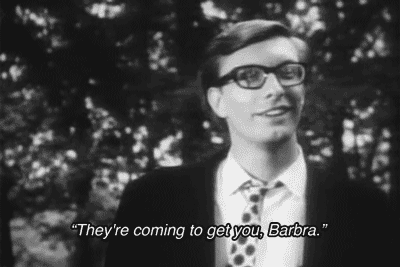 Personally, I think there is plenty of rot when it comes to the genre, but don't let that turn you away. As I mentioned my recent personal highlight is The Walking Dead adventure game by TellTale Games (you may need someone nearby to hold you after and tell you "it's all alright") Do Not be confused and buy 'The Walking Dead: Survival Instinct' because I heard it sucked. Other games you might fancy are first and foremost The Last Of Us; other less story heavy games are Left 4 Dead, Dead Rising and Dead Island. In the book category The Walking Dead, Marvel Zombies, World War Z, I Am Legend, and though it isn't a zombie story The Hot Zone. Ah yes movies and so many fine ones some serious some fun. Night of the Living Dead (1968), Dawn of the Dead (Both), The Re-Animator (1985), Dead Alive [Peter Jackson directed this!], Shaun of the Dead, 28 Days Later (Not a "Zombie" movie), Evil Dead Series, and I better stop myself now before I go on and longer.
Personally, I think there is plenty of rot when it comes to the genre, but don't let that turn you away. As I mentioned my recent personal highlight is The Walking Dead adventure game by TellTale Games (you may need someone nearby to hold you after and tell you "it's all alright") Do Not be confused and buy 'The Walking Dead: Survival Instinct' because I heard it sucked. Other games you might fancy are first and foremost The Last Of Us; other less story heavy games are Left 4 Dead, Dead Rising and Dead Island. In the book category The Walking Dead, Marvel Zombies, World War Z, I Am Legend, and though it isn't a zombie story The Hot Zone. Ah yes movies and so many fine ones some serious some fun. Night of the Living Dead (1968), Dawn of the Dead (Both), The Re-Animator (1985), Dead Alive [Peter Jackson directed this!], Shaun of the Dead, 28 Days Later (Not a "Zombie" movie), Evil Dead Series, and I better stop myself now before I go on and longer.Really the genre can tell a multitude of stories and may very well be making more headway now than it has in years.

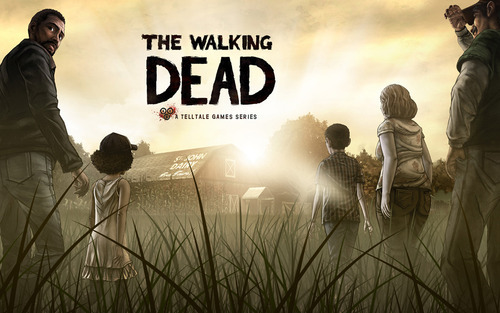

No comments:
Post a Comment